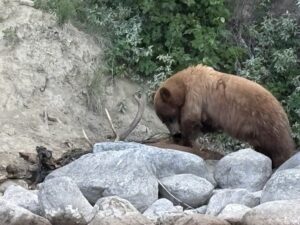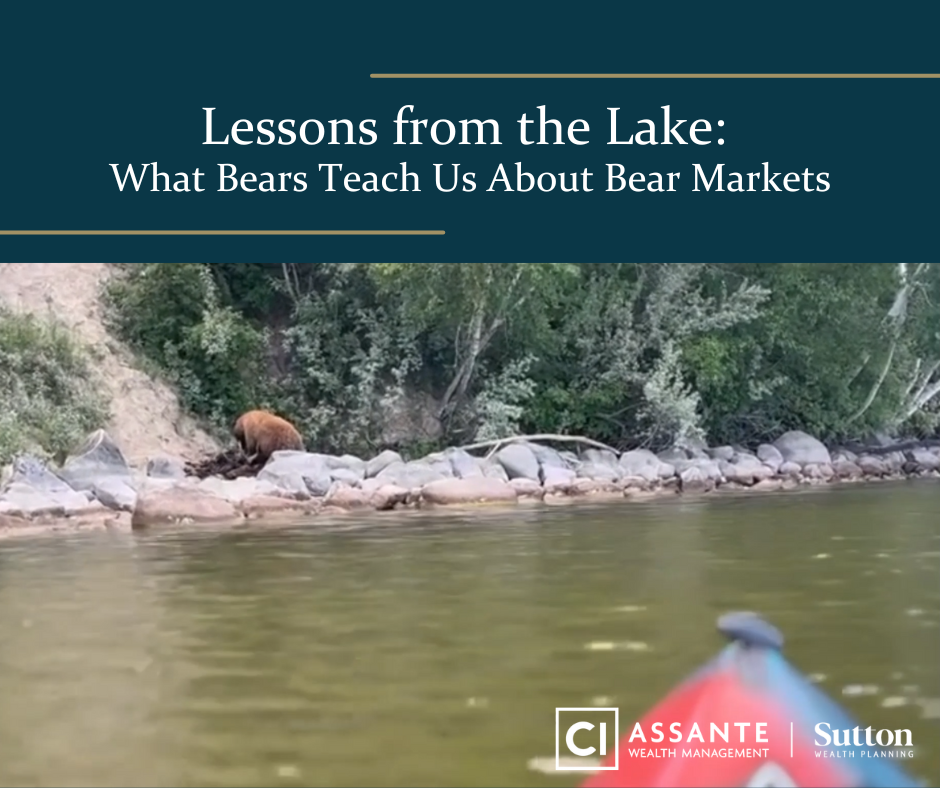Paddling quietly across Waskesiu Lake one morning, I witnessed a scene both raw and profound: a bear, powerful and unhurried, feasting on a fallen elk at the water’s edge. There was no panic in the bear’s movements—only presence, patience, and purpose. It struck me then how much we, as investors and advisors, can learn from the bear itself—especially in the throes of a bear market.
 Bear markets, like bears in the wild, are not anomalies. They are part of nature’s rhythm. They arrive unannounced, stir fear, and then, just as surely, they pass. As a wealth advisor, I’ve come to see these downturns not as threats to be avoided, but as seasons to be understood.
Bear markets, like bears in the wild, are not anomalies. They are part of nature’s rhythm. They arrive unannounced, stir fear, and then, just as surely, they pass. As a wealth advisor, I’ve come to see these downturns not as threats to be avoided, but as seasons to be understood.
There are four essential truths about bear markets that we should carry like a compass:
- Bear markets are natural. Just as ecosystems cycle through growth and decay, so too do the markets. They overshoot in euphoria and undershoot in fear. The bear on the shore wasn’t panicked by scarcity—it was simply responding to the moment. We must do the same.
- Bear markets are common. Since WWII, we’ve seen thirteen of them—roughly one every five years. They are as common as dirt. Trying to avoid them is like trying to paddle a lake without encountering wind. Instead, we must build the emotional resilience to stay afloat.
- Bear markets are temporary interruptions of a permanent uptrend. From 1946 to now, the S&P has risen more than 60-fold. The bear may pause the journey, but it never ends it. The long-term trajectory of human enterprise is upward.
- Volatility is the price of admission. The same unpredictability that makes equities nerve-wracking also makes them rewarding. Without the storm, there is no rainbow. Without the bear, there is no feast.
And so, when markets tumble and headlines scream, I remember the bear. I remember its calmness, its confidence, and its clarity of purpose. I’m reminded that trying to time the market is like trying to predict the bear’s next move—futile and often dangerous. Instead, we stay the course. We trust the cycle. We honor the process.
Because in the end, the bear is not our enemy. It is our teacher.
No winter lasts forever; no spring skips its turn.”
— Hal Borland


